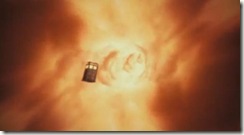Springing forward: Sleep deprivation, accidents, and heart attacks
 It’s that time of year, again. It’s time to change the clocks for daylight saving time.
It’s that time of year, again. It’s time to change the clocks for daylight saving time.
This evening most of North America sets its clocks forward an hour in a vain attempt to save energy. I say vain attempt because there hasn’t been any sound evidence that adjusting the clocks to chase the sunshine has actually resulted in any reduction in the demand for energy.
CBC had an article this morning that talks a little bit about the history of daylight saving time, and then points out that sleep experts say that many people who make the change will feel sleep deprived and probably take two or three days to fully adapt. If you’re already sleep deprived, well, good luck! As I mentioned last year, your risk of experiencing a heart attack goes up by 10% for the first couple of days, and you’re more likely to be in an accident.
If you’re a *NIX system administrator you probably updated your systems a couple of years ago, but in case you haven’t you probably should take a look at this. The zdump command should give you something like this:
[pastacode lang=”less” message=”” highlight=”” provider=”manual”]
[gordon@seedling gordon]$ zdump -v /etc/localtime|grep 2015
/etc/localtime Sun Mar 8 06:59:59 2015 UTC = Sun Mar 8 01:59:59 2015 EST isdst=0 gmtoff=-18000
/etc/localtime Sun Mar 8 07:00:00 2015 UTC = Sun Mar 8 03:00:00 2015 EDT isdst=1 gmtoff=-14400
/etc/localtime Sun Nov 1 05:59:59 2015 UTC = Sun Nov 1 01:59:59 2015 EDT isdst=1 gmtoff=-14400
/etc/localtime Sun Nov 1 06:00:00 2015 UTC = Sun Nov 1 01:00:00 2015 EST isdst=0 gmtoff=-18000[/pastacode]



 AKA Keeper of Maps, I'm a geocacher who lives in Ottawa, Canada.
AKA Keeper of Maps, I'm a geocacher who lives in Ottawa, Canada.
